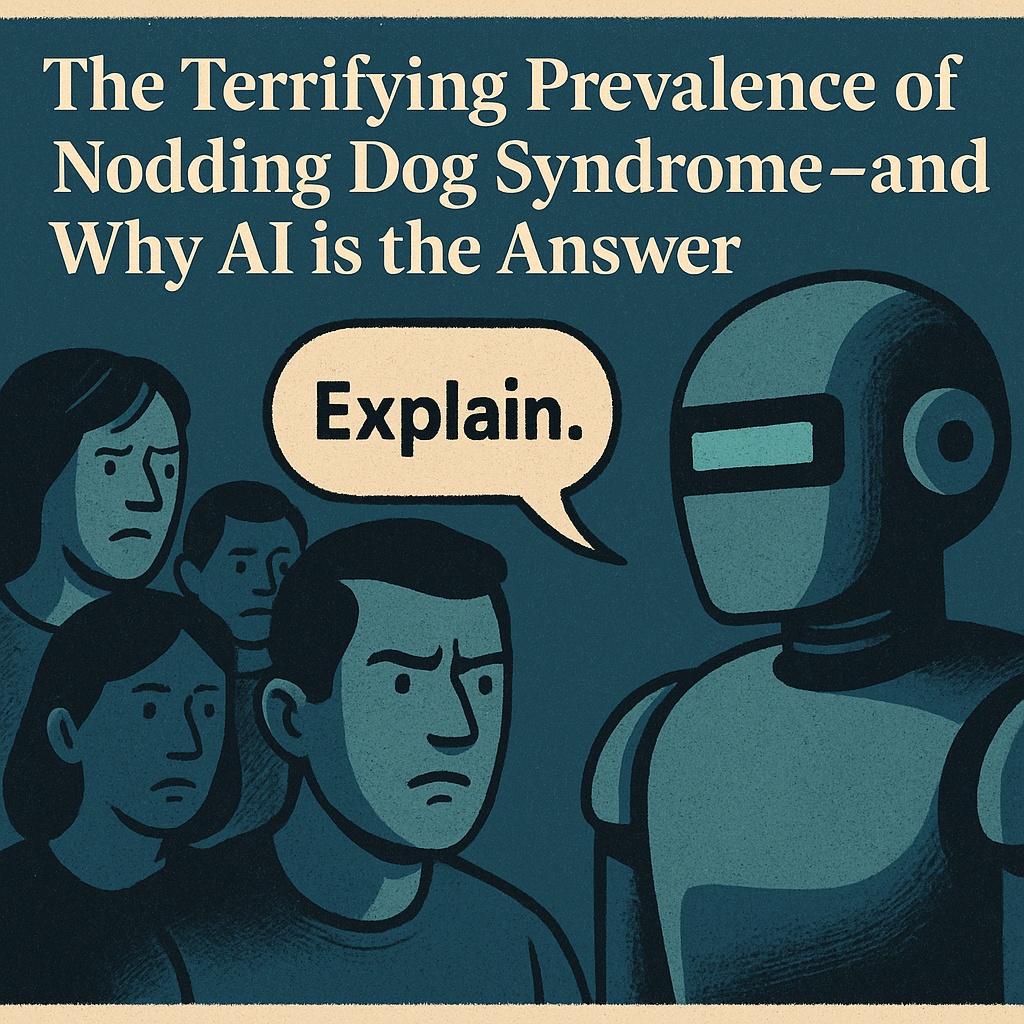I’ve been thinking a lot about something I’m calling Nodding Dog Syndrome—the quiet epidemic of pretending we understand things that we don’t. Not because we’re lazy. But because the world is full of explanations that are either wrong, rushed, or wrapped in prestige language we’re afraid to challenge. So we nod. We nod in school, in meetings, in life. And then we carry these half-understandings like broken tools in a kit we never really learned to use.
And the reason? Until now, there simply wasn’t an interlocutor we could push. Someone we could interrupt, question, argue with—violently if necessary—and say:
“No. That’s not it. Try again. And again. And again.”
But then AI happened.
Suddenly, there’s an entity you can wrestle with at 3 a.m.
One that doesn’t get tired, offended, or dismissive.
One that doesn’t wave your confusion away with a smug “It’s complicated.”
That’s an epistemic shift. A historical moment.
For the first time, you can refuse to nod.
Case in point: I now understand relativity, quantum entanglement, gravity, and electricity—not because I got smarter, but because I finally had a patient, tireless explainer who let me fight for clarity on my terms.
That’s revolutionary.
That’s the real democratization of knowledge.
But here’s the tragedy:
There’s a very real chance people won’t use it that way.
That instead of thinking with AI, they’ll let it think for them.
They’ll turn it into yet another source of confident-sounding answers to nod along with.
And then we’ll be right back where we started—only worse.
More data. Less understanding.
A smarter world. Dumber minds.
Unless we choose otherwise.




